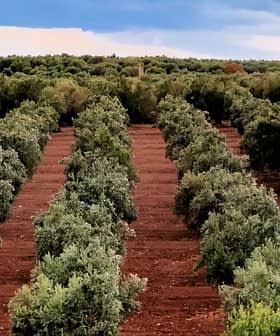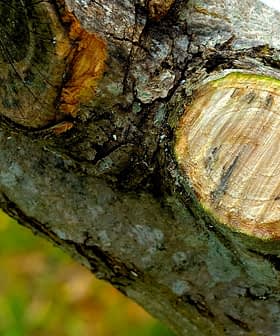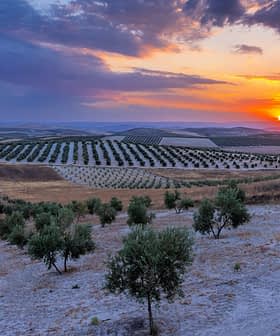Xylella Fastidiosa Identified in Extremadura

Plant health authorities in Extremadura have identified Xylella fastidiosa in the autonomous community, enacting containment and eradication measures, including the immediate elimination of infected plants and establishment of buffer zones. The fastidiosa subspecies was found in rockroses, Cytisus plants, and lavender in Valencia de Alcántara, with no infected olive trees identified, and similar outbreaks have been reported in neighboring Portugal and the Balearic Islands.
Plant health authorities in Extremadura have identified Xyellla fastidiosa in the autonomous community and enacted containment and eradication measures.
Authorities said the fastidiosa subspecies (Xylella fastidiosa fastidiosa) of the deadly plant pathogen was identified in two types of rockroses, two species of Cytisus plants and lavender in the hilly region of Valencia de Alcántara in the province of Cáceres.
According to the European Food Safety Authority, Xylella fastidiosa is not known to naturally infect olive trees, and authorities confirmed that no infected olive trees were identified.
See Also:Xylella-Resilient Groves Are the Future of Apulian Olive OilThe pauca and multiplex subspecies infect olive trees and cause Olive Quick Decline Syndrome, which has no cure and has been identified in other Spanish regions.
Extremaduran plant health officials also launched the eradication protocol, which includes the immediate elimination of all infected plants susceptible to the fastidiosa subspecies in a 50-meter radius, the establishment of a 2.5‑kilometer buffer zone, insecticidal treatments against vector species and the start of a surveillance program.
Extremadura is Spain’s third-largest olive oil-producing region, yielding 68,997 tons of olive oil in the 2023/24 crop year, of which 8,220 tons were produced in Cáceres.
The same fastidiosa subspecies has been present in neighboring Portugal since 2019, with multiplex subspecies identified around the northern city of Oporto in 2023.
Xylella fastidiosa
Xylella fastidiosa is a gram-negative bacterium that is known for causing a variety of plant diseases. It is a pathogen that primarily affects the xylem, which is the plant tissue responsible for transporting water and nutrients from the roots to other parts of the plant. Xylella fastidiosa is a significant concern in agriculture and forestry because it can infect a wide range of plant species, leading to economic losses and environmental damage. This bacterium is transmitted by insect vectors, such as sharpshooters and spittlebugs, which feed on plant sap. When these insects feed on infected plants, they acquire the bacterium and can then transmit it to healthy plants when they feed on them. Xylella fastidiosa can infect both agricultural crops and ornamental plants, and it has been responsible for devastating diseases in various parts of the world. Some of the well-known diseases caused by Xylella fastidiosa include Pierce’s Disease, Citrus Variegated Chlorosis (CVC) and Olive Quick Decline Syndrome (OQDS). Efforts to control Xylella fastidiosa include the use of insecticides to manage the insect vectors, as well as efforts to quarantine and remove infected plants to prevent further spread. Research is ongoing to develop more effective strategies for managing and preventing the spread of this bacterium and its associated plant diseases.
The news of the discovery followed an announcement by local authorities on the Balearic Islands that 37 wild olive trees, known as acebuches, infected with Xylella fastidiosa pauca, were destroyed in Sencelles.
The Balearic Institute of Nature destroyed 103 susceptible trees over two hectares in the center of Mallorca, the largest island in the Mediterranean archipelago.
“Currently, the positive cases for this species are all concentrated in the area near the cemetery of this municipality,” Joan Simonet, a local councilor, told Diario de Mallorca.
“[The interventions] have allowed better containment of the bacteria, a fact that favors the conservation of the wild olive trees in good condition and helps protect the rest of the island and olive plantations from the advance of Xylella fastidiosa,” he added.
While the first pauca infections were identified in early 2024, Xylella fastidiosa was detected initially on the Balearic Islands in November 2016.
A Xylella fastidiosa multiplex outbreak in the Valencian Community is the only other active hotspot in the country.
As of April 2024, local plant health authorities reported that the bacteria had infected 26 plant species but no olive trees. They also identified three insect vectors, including the meadow spittlebug, which preys on olives.
Previous Xylella fastidiosa outbreaks in the Community of Madrid and Almería in 2018 were successfully eradicated, and the areas remain free of the bacteria.
Along with Spain and Portugal, Xylella fastidiosa has been identified in France – where authorities said it is unlikely to be eradicated – and Italy.
Since it was first identified in 2013, Xylella fastidiosa pauca has severely impacted olive oil production in Puglia, Italy’s most significant olive oil region, and contributed to the steady harvest declines from the record-high levels throughout the 1990s and 2000s.










